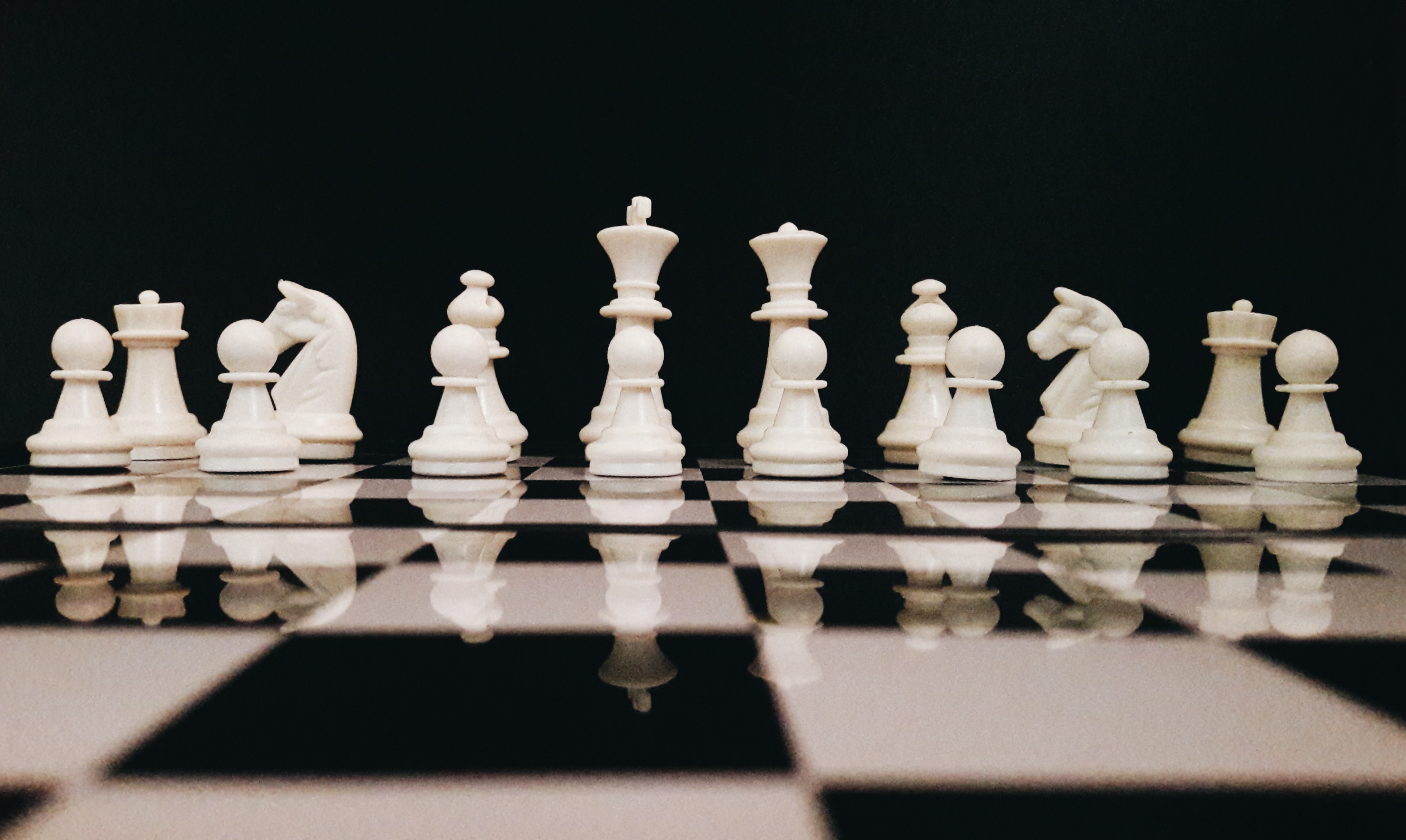Before starting I would like to say that I am not a chess GM, so if you are already 2200 ELO these books won’t help you that much if at all. Other than that, I will structure this list based on what I consider is the most important.
Starting out
The most important thing in chess when starting out is practicing tactics. These will improve your “chess vision” dramatically and very quickly at the beginning. I recommend opening an account in lichess.org and doing puzzles (their name for tactics). The puzzles have a rating, and the more puzzles you solve the more difficult they become. Lichess is totally free and has no ads, but if you prefer books for training tactics I recommend the following.
Chess: 5334 Problems, Combinations, and Games (by L. Polgar)
This book is will help in finding mating patterns on the board, as it has complete sections dedicated to mate in 1, 2 or 3 moves. After those, it also has other combination examples. Overall, it is a very complete tactics book that I always recommend to those who don’t want to use Lichess.
Tal’s Winning Chess Combinations (by Mikhail Tal and Victor Khenkin)
A very old book (hard on the eyes with it’s style and formatting) written by the great Mikhail Tal. Tal was known for his crazy but accurate sacrifices over the board. You will definitly learn some stuff from one of the greatest tacticians of all time. Though, I still recommend Lichess instead.
Endgames
When you are a beginner, blunders will decide games and it will be fairly easy to mate the opponent. As you rise through the ELO ladder, the matches will become more and more even which will mean you will benefit from having excellent endgame technique. For this matter, I recommend you use only one book until you start approaching master levels of play.
Complete Endgame Course (by Jeremy Silman)
The only endgame book you will need in your journey as an amateur player. The book is structured by ELO, which means not only the difficulty to master the techniques but also by how often you will encounter these endgames. If you had to buy a single chess book as a beginner, it should be this one. You could reach 2200 ELO (or higher) just by doing tactics in Lichess, studying this book, playing OTB (over the board) and analysing your games with a chess engine (also can be done in Lichess). Aside from this book, if you reach GM level you should take a look at Dvoretsky’s books, which greatly help with rook endgames (the most difficult in my opinion).
Strategy and positional play books
These books will help you better understand different boards, such as the strengths and weaknesses of both sides. I would also hope they help you take advantage of the imbalances that arise in your games.
The Amateur’s Mind (by Jeremy Silman)
I believe this one is geared towards players with an ELO of around 1600. It covers many chess concepts, such as bishops against knights, space on the board, pawn structure, initiative, etc. All of the concepts are explained using games from the students of the author. Overall I think this is a great initiation in chess strategy that will help you gain ELO.
How to Reasses Your Chess (by Jeremy Silman)
This book is for players of slightly higher ELO than the previous book, probably around 1800. It covers the same concepts but uses examples that are more complex and therefore more difficult. If you liked the previous book you should follow with this book for sure.
Understanding Chess Move by Move (by John Nunn)
This is a great book written by a player who peaked at 2630 ELO, in comparison to Jeremy Silman who has only reached IM level (still great). The book analyses different games from the view of modern chess, where concrete calculation allows for moves which otherwise would be considered wrong from an strategic point of view. It features very nice top level games from players like Kasparov or Nigel Short. It is also a great read, but it is also slightly more difficult than Jeremy Silman’s books, so you could leave it for last after you are finished with the previous two books.
Openings
I am a firm believer that you should not focus too much on chess openings as they rely too much on memorization and too little on actual thinking. For this reason I only recommend Fundamental Chess Openings (by Paul van der Sterren), and to use it only as a reference when exploring new openings that you might find enjoyable. The way I would approach openings is by picking opening that you like and just playing them as often as possible. If you think you were outplayed in the opening just analyse with the engine where you went wrong and correct it for the next game.
My Great Predecessors (by Garry Kasparov)
This is a set of 4 volumes in which one of the greatest players of all time goes over previous chess world champions, both their style and specific games that they played. I wouldn’t buy these for studying, but rather if you have too much time on yourself it can be a very nice and entertaining to read.
